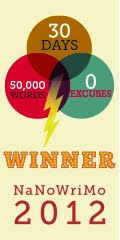
Images of Conflict
The photographic book “Silent Witnesses: the Lives of Palestine’s Children” brings home to the reader the traumatic conditions in which many Palestinian children live, but it also conveys their spirit and resilience.
The photographs, mostly in black and white, take us into the streets, homes, families and schools of Palestinian refugee camps and towns. Some show scenes of confrontations and demonstrations, with children having apprehensive, fearful or glowering expressions. In others, children dance, study, stand with arms round friends or family, protect siblings and smile at the camera. Interspersed with the photographs are colourful drawings by children, which reflect the violent conditions under which the children are growing up.
The handsomely produced 240-page book is a project of the Al-Madad Foundation, the UK-registered charity founded in 2000 by Faiza Alreza of Saudi Arabia with the help of her daughters Basma and Yasmin. The book is published by Elliott & Thompson of London and was launched in collaboration with Boucheron, the jewellers. The majority of the photographs were taken by the internationally renowned fashion photographer Stefano Massimo.
Al-Madad has a track record in aiding projects for the Palestinians, including Action Around Bethlehem Children with Disability (ABCD) and Spafford Children’s Center in East Jerusalem.
The charity also co-produced the film “Seeds of Peace” about the work of the Seeds of Peace camp in the US, which brings together young people from regions of conflict including Palestine and Israel.
One of Al-Madad’s earliest projects was to help Birzeit University Photographic Library. “Silent Witnesses” is a further development in this process, with its photographs coming not only from Stefano Massimo, but also from Rula Halawani, Ali Karakrah, Ameer Shata, Baker Atari and Birzeit’s Photographic Department.
In his introduction to the book, Prince El Hassan bin Talal of Jordan writes: “The voice of the silenced majority, including that of the youth, has to be raised in our traumatised part of the world.”
The only fault of the Palestinian children portrayed in the book is “the fact that they were born under an occupation that erects hundreds of check points, roadblocks, trenches and earthen walls to block their way to school and to normality. It is not normal to witness the death of friends, the firing into schools and the razing of homes.”
Prince El Hassan states: “As political, economic and security plans are designed, the voices of the children are stifled behind the Wall, but it is initiatives such as this book that will carry their clear voices to the world with the message that every child is born free, without a label.”
Susannah Tarbush
Saudi Gazette 3 January 2005


1 comment:
Beautiful, sad book. Let the children of Palestine be free! Work towards ending the occupation of their Homeland and their lives. We cannot stand by, and yet think of ourselves as good people.
Post a Comment